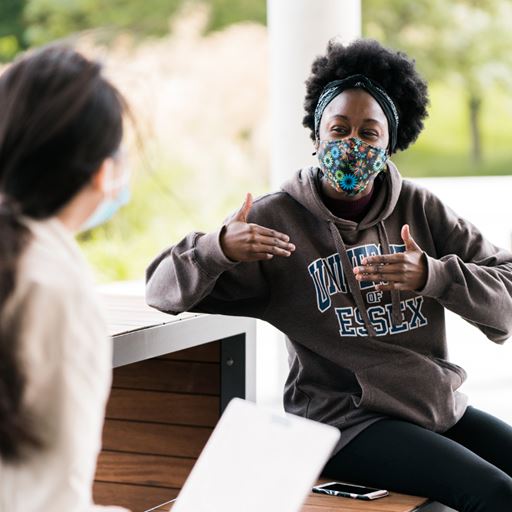Essex Dialogues: charting the impact of Covid-19 on law, human rights and social care
-
Date
Thu 2 Jul 20

Legal, human rights and social care experts from the University of Essex have published an extensive response to the coronavirus pandemic, to encourage further debate and guide policy in the post-Covid-19 world.
Global experts in law, human rights and social work have today published a swift and comprehensive analysis of the impact of the Covid-19 pandemic, looking at responses at both national and international levels.
Across 32 chapters and eight themed discussions, COVID-19, Law and Human Rights: Essex Dialogues delivers expert commentary on issues ranging from emergency powers legislation to protecting the most vulnerable; from the potential unforeseen consequences of insolvency legislation to access to justice; from the risks of cyber crime to the dangers of misinformation; and from the duties placed on States and companies to options for redress.
The collection looks at the pandemic’s impact in the UK and on systems and processes across Europe, Latin America and Africa.
Dr Carla Ferstman, a lecturer in the School of Law and Human Rights Centre and co-editor of the collection, said: “Covid-19 is affecting all aspects of our lives, magnifying and intensifying structural inequalities and impacting upon just about every human right."
“The purpose of this publication is to examine these intersecting impacts from as many perspectives as possible, and to begin the process of charting what "building back better" means in practice.
The collection also draws on expertise in social work. Caroline Bald and Dr Sharon Walker tackle health inequalities, claiming the UK government has breached the Human Rights Act in its treatment of socially-disadvantaged groups. They challenge the sector to address its 'marginalisation' and call for a review of social work practice and education. Dr Aaron Wyllie looks at the human rights of older people during the pandemic, in the context of the Care Act and the European Convention on Human Rights. He observes that, "the rapid changes seen since Covid-19, whether as a consequence of the illness itself, or policies developed in response, have exacerbated underlying vulnerabilities and raised several human rights concerns."
Beginning with Some Conceptual Framings, the sections are: Global, Regional and Comparative Perspectives; The Right to Health; The Effects of the Covid-19 Pandemic on the Regulation of the Economy; The Impact on Vulnerable Populations; Access to Justice; Big Data and Technology; and Accountability.
Dr Carla Ferstman said: “It was particularly important for Dr Andrew Fagan and I, as editors, to be as diverse and as inclusive as possible. The range of perspectives reminds us all that multidisciplinary - and often interdisciplinary - approaches are necessary to tackle complex global problems.”
Professor Karen Hulme, Head of the School of Law, said: “At a time of fundamental uncertainty in many areas, it is crucial for the School of Law to respond to the many legal challenges and research gaps that are evident in the current situation.”
“The contributions showcase the breadth of the School’s research capacity and are a manifestation of the School’s mission to carry out research that matters in the world from many different perspectives.”
The research community across law and human rights has been visible throughout the current crisis.
A submission from the Human Rights, Big Data and Technology project, on issues raised by the proposed UK contact-tracing app, was referenced in a report from the Human Rights Committee.
RightsCast, the Human Rights Centre podcast, has presented discussions on topics ranging from Human Rights in the time of COVID to the impact on refugees and the importance of free school meals.
A summary of the Human Rights Centre's research during this period is available on the Centre's blog.
You can read COVID-19, Law and Human Rights: Essex Dialogues for free on our website.
.jpg?mh=500&mw=500&hash=6568B6C9CCF5290A596BEF6678B6AD0E)



